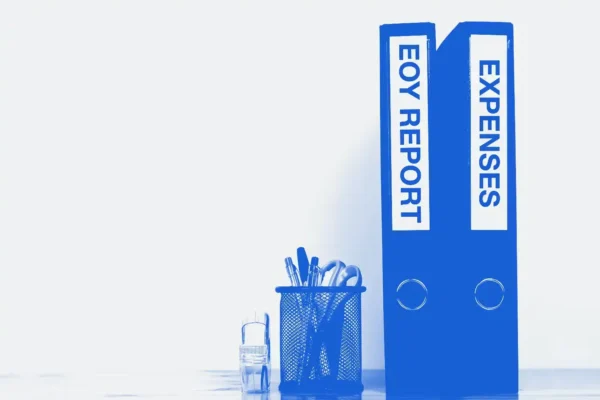
How to Manage Finances as a Freelancer

In a rapidly evolving professional landscape, the concept of freelance work has taken center stage. Freelancing offers unparalleled flexibility, the chance to pursue your passions, and the opportunity to create your own path. As the gig economy continues to expand, more folks are embracing freelancing as a way to craft their careers on their terms.
However, even with the allure of independence and creativity, there is a critical aspect that every freelancer must master: managing finances.
In this article, we’ll look at some of the most important financial aspects to consider when working for yourself and how to stay on track as you earn money.
Tip #1: Open a business bank account.
One of the fundamental steps in managing your finances as a freelancer is setting up a dedicated business bank account.
Combining personal and business finances can quickly become a recipe for confusion and complications. When you mix funds, it becomes challenging to track business expenses and income accurately. Opening a separate business bank account allows you to:
- Better understand how much your business earns and spends
- Track and claim legitimate deductions during tax time
- Simplify record-keeping
- Demonstrate professionalism to clients, partners, and tax authorities
On top of that, opening a business bank account gives you access to more business banking features and more ways of accepting payments from your clients.
Check Out Our HYSA for Businesses
Earn a competitive rate and pay zero bank fees¹ with a business high-yield savings account at Amplify.
Tip #2: Find a reputable CPA.
Navigating the intricate web of tax regulations and financial complexities as a freelancer can be overwhelming. Luckily, you don’t have to do it alone.
That’s where a reputable certified public accountant (CPA) comes in.
Collaborating with a skilled CPA— and specifically one who understands the ins and outs of freelancing— can be a game-changer.
They can help you:
- Choose the right tax entity election (Sole proprietor, S-Corp, C-Corp, etc.)
- Identify expenses that you can write off on taxes
- Pay your taxes on time (freelancers, for instance, oftentimes are required to pay taxes quarterly)
- Give general advice on business financials
With their expertise, you can focus on your craft without constantly worrying about financial compliance.
Tip #3: Think about taxes year-round.
Many freelancers make the mistake of only thinking about taxes in April. Doing this will leave you in a messy pile of receipts at 3 AM, wondering why you decided to pursue a freelance career in the first place. It can also make paying your taxes a painful event— especially if you didn’t set aside money for that very purpose throughout the year.
To avoid this chaotic scenario, it’s essential to cultivate a year-round tax mindset. Doing a little work every month throughout the year can save a ton of headache come April.
Each month (at a minimum), you’ll want to do these two main things:
- Set aside money for taxes (experts recommend holding about 30% of your income for this purpose)
- Make sure your income and expenses record-keeping is up to date.
Regularly setting aside funds for taxes and keeping detailed records will save you from unnecessary stress and ensure smooth sailing come tax season.
Tip #4: Invest in accounting software.
Speaking of keeping detailed records, you’ll need a place to keep track of your financial transactions.
While you can do this by yourself with some good ol’ fashioned spreadsheets, accounting software makes everything more straightforward. These tools offer a range of benefits, from tracking income and expenses to generating accurate financial reports to sending invoices.
With intuitive interfaces and automation features, they simplify the often-daunting task of bookkeeping. By adopting accounting software tailored to freelancers, you can proactively manage your finances, stay on top of your cash flow, and make informed decisions to fuel the growth of your freelance venture.
Tip #5: Take advantage of credit but use it responsibly.
Credit cards and business loans can be powerful tools for freelancers when used responsibly.
Business Credit Cards
Just as there are bank accounts designed for business owners, financial institutions often offer business credit cards. They function the same as a personal credit card and have a number of advantages for freelancers:
- Convenience: Credit cards offer a convenient way to make purchases both online and offline, allowing you to pay for business-related expenses with ease.
- Cash flow management: Credit cards provide a temporary source of financing, helping you manage cash flow gaps between projects or client payments.
- Rewards and benefits: Many credit cards offer rewards, such as cash back, travel points, or discounts on business-related expenses, which can add value to your freelancing journey.
However, credit cards do come with some risks. To avoid spiraling into debt and being hit with high interest fees, keep the following credit card best practices in mind.
- Create a budget: Establish a budget for your freelance expenses and stick to it. Use your credit card as a tool to manage expenses within your budget, not as a means to overspend.
- Pay bills in full: Whenever possible, pay your credit card balance in full each month to avoid interest charges. If you can’t pay in full, strive to make more than the minimum payment to reduce the interest you’ll owe.
- Monitor your statements: Regularly review your credit card statements to ensure accuracy and identify any unauthorized transactions promptly.
- Limit cards: Consider having just one or two credit cards to manage your business expenses. Having too many cards can complicate financial tracking.
- Create an emergency fund: Have an emergency fund in place to cover unexpected business expenses, reducing the temptation to rely solely on credit.
- Separate personal and business expenses: Use your credit card exclusively for business-related expenses to maintain accurate financial records.
Using business credit cards responsibly will not only keep your business out of financial trouble, it can also help you as your business grows. Responsible credit card usage can contribute to building a strong credit history. A positive credit history can benefit your freelancing career by enabling you to access better credit terms, including lower interest rates and higher credit limits.
Business Loans
As a freelancer, there might come a time when you need additional funds to invest in your business or manage larger unexpected expenses. Commercial loans can be valuable tools when used strategically.
Commercial loans can be advantageous in several scenarios:
- Business expansion: If your freelance business is growing rapidly, a commercial loan can provide the capital needed to hire more staff, invest in equipment, or expand your services.
- Seasonal fluctuations: Freelancers often experience seasonal fluctuations in income. A loan can help bridge the gap during slower periods and ensure continuity.
- Project financing: Large projects may require upfront investments that your current cash flow cannot cover. A commercial loan can provide the necessary funds to take on such projects.
- Technology upgrades: Keeping up with technology is crucial for many freelancers. A loan can fund upgrades to software, hardware, and other tech essentials.
- Marketing and promotion: Investing in marketing efforts can attract more clients and boost your income. A loan can help fund marketing campaigns and strategies.
The important thing to remember is that you should never take out a loan that you cannot afford to pay back. Before applying, always do the math to understand what your monthly payment may look like.
There are also numerous types of small business loans available to freelancers that you should explore before signing on the dotted line.
Before taking out a loan, always be sure to consult with your CPA and a loan expert at your local credit union or bank. These financial experts can help you choose a loan that makes the most sense for your situation.
You’re Never Alone in Freelancing Finances
Though you may be embarking on your own as a freelancer, you’re never alone when it comes to managing finances. Whether you’re meeting with your CPA about taxes, finding the right loan to aid your growing business with your local credit union, or learning something new from other freelancers online, you’ve got people in your corner that are here to help.
Ditch the Bank Fees
Learn more about our fee-free business accounts – perfect for small businesses in Austin and Central Texas.


